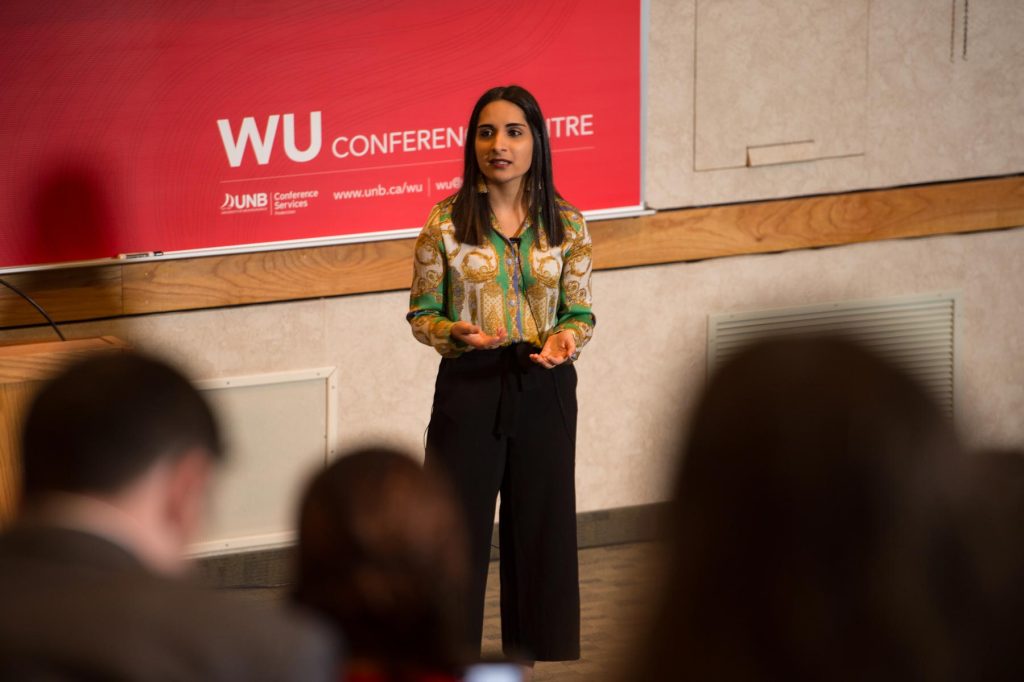For students interested in innovation and entrepreneurship, the RBC Student Pitch Competition is a great opportunity to gain some experience pitching ideas to a public audience.
The Pitch Competition took place on March 23, at the Wu Centre, where full-time UNB students had the opportunity to pitch their innovative ideas for the chance to win prizes.
The event was organized and hosted by the Technology, Management, and Entrepreneurship (TME) Program.
Students took turns giving their pitches, then would answer questions from the judges about their idea, and sometimes answer questions from the crowd if there was time remaining.
The pitches themselves were kept short to about three minutes, with a timer on standby. TME Program Manager Phil Lambert referred to them as elevator pitches, a short but efficient pitching style that can be used if you only have a brief chance to talk to someone about your idea.
“The idea behind that is when people are trying to raise money, and they might be at a conference somewhere and come across an investor who is in the right area for them, happen to meet them on an elevator, they’ve got three minutes as they’re riding an elevator up together to get their idea across,” said Lambert.
He said that that’s why the pitch is supposed to be more succinct, with no notes or props to rely on. It just involves talking to someone who may be able to provide assistance in the next step towards advancing their idea.
Given that elevator pitches, and pitching in general, are incredibly useful skills for people seeking entrepreneurial opportunities, this competition is a valuable experience even for those who don’t win.
“I think one of the best things about this is that it does get people practicing that idea of getting their concept across succinctly and getting up in front of an audience in a relatively intimidating environment,” said Lambert.
The judges’ criteria included market potential, innovativeness, if the pitcher has talked to people to validate their idea, and the effectiveness of the presenter in not only getting their idea across, but also in answering questions about their idea.
The ideas that were pitched ranged in topic, from healthier vending machines with fresh produce to a faster more efficient ways of converting cars to running on electric. Something many of the pitches had in common was a consciousness of sustainability.
Students had the option to enter one of two categories: ideas or growth. The ideas category was for students who don’t have much pitching experience and have concepts that may be more untested. The growth category was for master’s students who likely have more public speaking experience and concepts that are more established.
There were 14 prizes given out, amounting to a total of $7,100. First place in the ideas category, which comes with a $1000 prize, went to Holly Ayles for her “Have Food” pitch. The first place winner for the growth category, winning the same amount was Isaac Barkhouse with “Potential Motors.”
Prizes for technical innovation, social innovation, and a communication award were also awarded.
While most participants were from the engineering and business faculties, the competition, which is in its twelfth year, frequently gets students from different programs, including a fair amount of Renaissance College students.
Lambert added that while higher participation from engineering and business students might be due to more general interest, students from all programs are more than welcome to participate.
“I’d like to get more students out, education students, everybody should be trying this I think.”




